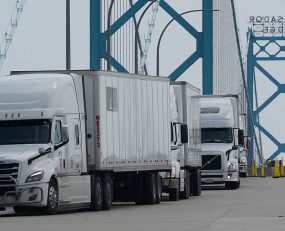
The UK government has recently announced it has delayed imposing post-Brexit border checks on imports from the EU for the fourth time, saying it did not want to worsen inflationary pressure and the cost-of-living crisis in the UK. New import checks on EU food products had been due to begin in July. The UK government has also stated that full checks on goods coming from the EU would be pushed back until the end of 2023.
Brexit opportunities minister Jacob Rees-Mogg justified the move by telling the BBC that border checks would have brought “quite significant” price increases for people at a time when the government was “trying to reduce costs. You would have been adding potentially £500 of costs on a shipment of fish fingers, that then falls through to the consumer.” According to BBC Analyst Faisal Islam, it is hoped that lower barriers may provide an incentive for the EU to reduce its equally stringent checks on UK food exports.
The announcement has been met with a mixed response. Some business groups welcomed the move; however repeated delays have led to complains from British producers that EU exporters have a competitive advantage. National Farmers’ Union President Minette Batters told the BBC that “our producers have to meet stringent controls to export their own products abroad, all while being left at a continued competitive disadvantage to our EU competitors, who are still enjoying an extended grace period which gives them access to the prized UK market relatively cost and burden free”. Ports, which have spent millions of pounds gearing up for the checks, have also criticised the move, stating they have been “landed with the bill of the government Brexit border U-turn.”
The announcement comes amongst mounting evidence that Brexit regulations have negatively impacted UK-EU trade. According to the Office for Budget Responsibility (OBR), the UK has “missed out on much of the recovery in global trade” following the pandemic. The analysis came in the statutory body’s Economic and Fiscal Outlook report, published in March 2022. The OBR stated that UK good exports to the EU were down by 18.0% on 2019 levels. It adds that there is “little sign to date” of UK goods exports to non-EU countries making up for lower exports to the EU.
The OBR continues: “Comparing our recent overall trade performance with other advanced economies suggests that the UK saw a similar collapse in exports as other countries at the start of the pandemic but has since missed out on much of the recovery in global trade. UK and aggregate advanced economy goods export volumes fell by around 20.0% during the initial wave of the pandemic in 2020. But by the fourth quarter of 2021 total advanced economy trade volumes had rebounded to 3.0% above their pre-pandemic levels while UK exports remain around 12.0% below”.
The OBR reported it expects weak growth in exports and imports in the medium turn. However, the body does expect trade growth to pick up over 2022 due to the unusual weakness of the past two years. The OBR expects imports and exports rise around 9.0% and 7.0% per cent respectively over 2022 as domestic demand and UK export markets recover, although the war in Ukraine and the international response pose risks to demand in UK export markets. This forecast reflects the OBR’s assumption that the UK’s departure from the EU will reduce the trade intensity of GDP, lowering both import penetration and the UK’s export market share.
It may take several years for the effects of Brexit regulations to fully materialise. According to the Public Accounts Committee however, the only detectable outcomes from Brexit so far are increasing costs, paperwork, and border delays for UK businesses.
Source: Transport Intelligence, May 5, 2022
Author: Nia Hudson